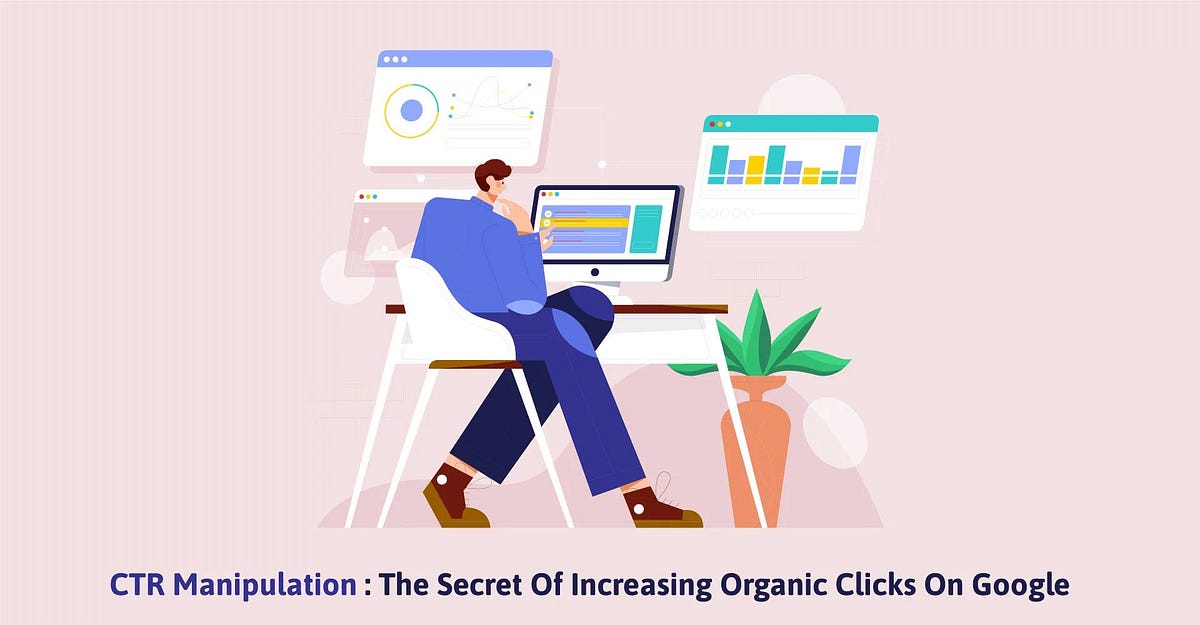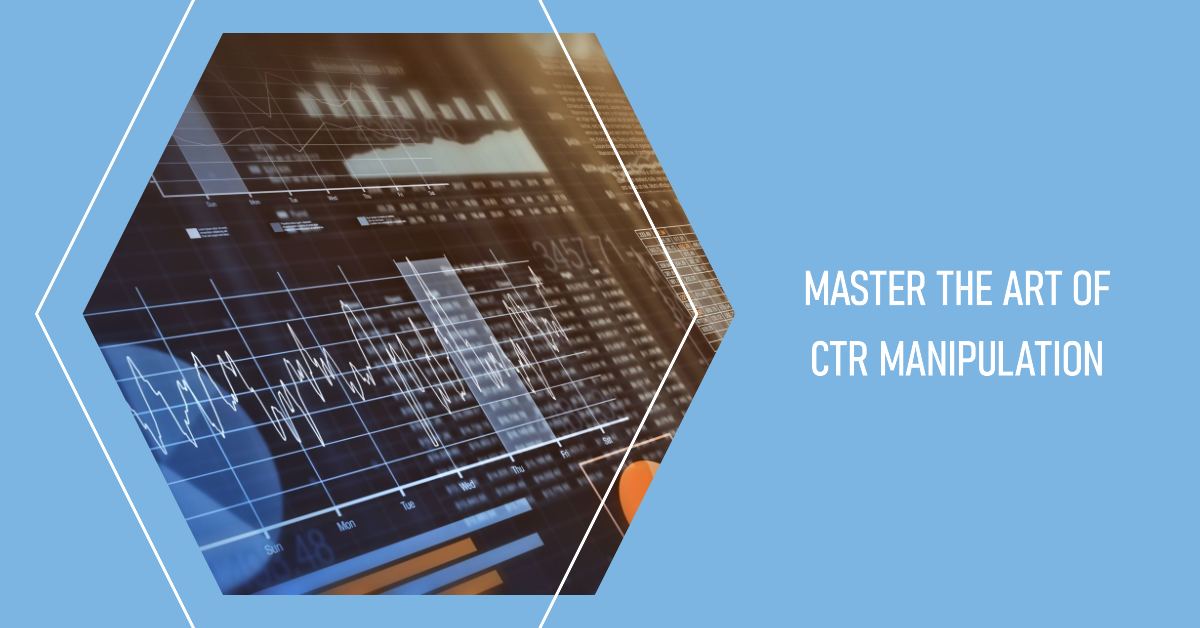Discovering the Connection Between CTR Adjustment Solutions and User Habits
In the realm of digital advertising and marketing, the impact of click-through price (CTR) adjustment services on customer behavior continues to be a facility and fascinating topic. By studying the complex relationship between CTR control services and customer behavior, interesting insights arise that may reshape our understanding of digital advertising and marketing techniques and their results on consumers.
Impact of CTR Adjustment on Behavior
Evaluating the impact of Click-Through Price (CTR) adjustment on user actions reveals vital understandings into the dynamics of online interaction. CTR control includes unnaturally pumping up the number of clicks on a certain link or promotion to deceive customers and online search engine. This method can bring about a distorted perception of a web page's popularity or significance, ultimately impacting individual habits.

Additionally, CTR adjustment can alter the data made use of by algorithms to customize individual experiences. This can result in users being served content that does not straighten with their preferences or passions, inevitably resulting in a decrease in customer complete satisfaction and interaction. Recognizing the effect of CTR control on customer behavior is crucial for preserving transparency and rely on online interactions.
Individual Engagement With Adjusted CTR
Customer engagement with adjusted CTR information often causes manipulated assumptions of on-line material appeal and relevance. When customers engage with material based upon synthetically inflated Click-Through Fees (CTR), they may believe that specific information, items, or services are a lot more popular or reliable than they actually are. This can cause users choosing based upon misleading data, leading to potentially negative results.
Interaction metrics like sort, shares, remarks, and time invested on a webpage are typically influenced by CTR adjustment. Customers may be extra likely to engage with web content that appears to have higher interaction rates, better perpetuating the cycle of manipulated understandings. As a result, web content creators and marketers may prioritize producing material that produces high CTR rather than focusing on creating really beneficial and pertinent product.

Psychological Results of CTR Control

Additionally, the psychological results of CTR adjustment can likewise materialize in altered decision-making processes. Individuals might be a lot more inclined to click on web content entirely based on its perceived popularity, instead of its actual worth or relevance to their demands. This behavioral shift can result in a superficial involvement with on the internet material, where users might neglect top quality yet much less popular offerings in favor of those with synthetically enhanced CTRs.
In significance, the psychological implications of CTR manipulation highlight the these details value of maintaining openness and credibility in online interactions to cultivate authentic customer engagement and count on.
Ethical Factors To Consider in CTR Adjustment
CTR adjustment raises concerns concerning tricking customers, distorting information analytics, and jeopardizing the reputation of on-line web content. By synthetically pumping up CTR, users may be misguided into clicking on links or advertisements they would certainly not have actually selected otherwise, leading to an insincere online experience.
One more honest aspect to ponder is the justness of controling CTR to acquire an unjust advantage over competitors. Involving in such methods not only violates concepts of fair play but likewise threatens the count on that individuals place in on the internet systems. It is essential for services and electronic marketers to maintain honest criteria you could check here in their practices to guarantee openness, reputation, and long-term sustainability in the online setting.
Implications for Digital Advertising And Marketing
With the raising reliance on digital platforms for advertising and marketing purposes, the method of adjusting click-through rates (CTR) postures considerable implications for the efficiency and stability of electronic advertising and marketing techniques. CTR adjustment can result in manipulated data analytics, misdirecting marketing professionals right into believing that their campaigns are executing better than they in fact are. This can result in misallocation of resources, with business spending in underperforming approaches based upon falsified CTRs. When customers understand that CTRs have been manipulated, it can wear down trust fund in the brand, leading to long-term unfavorable repercussions for consumer commitment and brand name online reputation.
In addition, the usage of CTR adjustment solutions can develop an unfair affordable landscape, where firms that involve in such techniques obtain a synthetic advantage over those that stick to moral advertising and marketing criteria. This can stifle advancement and imagination in digital advertising and marketing, as success ends up being even more concerning manipulation techniques than delivering authentic worth to consumers. Eventually, the implications of CTR control for electronic advertising and marketing extend past short-term gains, affecting the overall sustainability and integrity of advertising efforts in the digital realm.
Verdict
In verdict, the connection in between CTR control services and customer behavior is complicated and diverse. The effect of CTR manipulation on behavior, individual engagement with adjusted CTR, mental impacts, ethical considerations, and implications for electronic marketing all play a role fit this relationship. Recognizing these dynamics is critical for marketers and researchers alike in order to browse the ethical ramifications and make best use of the effectiveness of their electronic marketing methods.